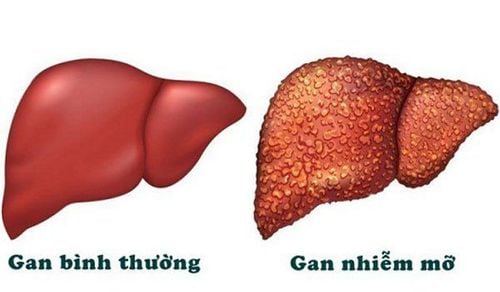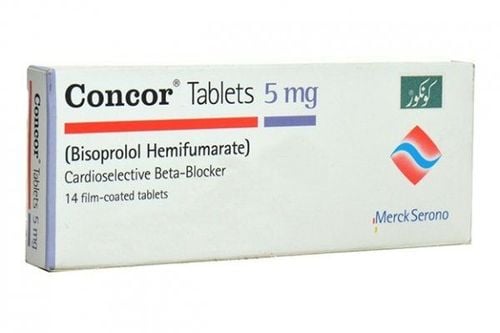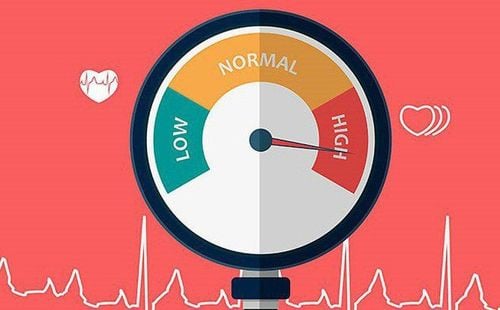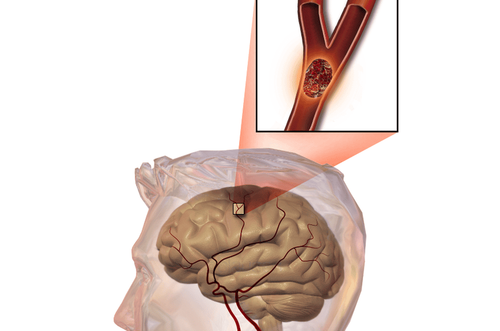1. Notes on supplementing nutrients after age 40
Starting at the age of 40, people are at high risk of non-communicable diseases such as diabetes, hypertension, chronic obstructive pulmonary disease (COPD) ... At this age, the rate of aging tends to increase, factors such as environmental influences, poor diet, excessive alcohol consumption, smoking, lack of exercise, and heightened stress levels can significantly raise the risk of developing diseases.
According to doctors' recommendations, as individuals enter middle age, their nutritional goals should focus on slowing the aging process, maintaining bone and muscle mass, reducing the risk of disease, and enhancing overall quality of life. Establishing a nutritional regimen during this stage can lower the risk of non-communicable diseases, including cancer, by more than 40%.
When supplementing nutrition for individuals aged 40 and above, it is important to ensure a balanced intake of nutrients from various foods containing proteins, fats, carbohydrates, vegetables, fruits, milk… Long-term protein deficiency can lead to a decrease in muscle mass, weakened immune function, malnutrition, slower wound healing. It is advisable to include nutritious milk in the daily diet, preferably choosing sugar-free and low-fat options, formula milk containing colostrum can be beneficial as it helps boost immunity, supports digestion, and aids in the recovery of ligaments and muscles.
At the age of 40, your nutrition should limit saturated fats from animal fats, margarine, coconut oil, palm oil... Instead, you should use unsaturated fats from sesame oil, olive oil, and soybean oil... use slow-metabolizing carbohydrates such as wheat, brown rice, potatoes, corn, limit sugar cane products and soft drinks...
2. What should be supplemented after the age of 40?
Nutrition is always important at any age and it is even more important when you reach the age of 40. Therefore, after the age of 40, determining what to supplement for better health becomes an important concern.
Some nutrients recommended by experts in the diet at the age of 40 are as follows:
2.1. Calcium is the answer to the question of what should be a supplement after the age of 40.
Calcium is a mineral essential for the structure of bones and teeth, playing a critical role in other fundamental functions such as nerve activity, blood vessel function, muscle contraction, and various biochemical reactions. The primary source of calcium for the body is dietary intake, with most of this mineral stored in bones. Therefore, when dietary calcium intake fails to meet the body's needs, calcium will be drawn from the bones, weakening them.
Studies indicate that from the age of 40 onwards, the body tends to lose more calcium than it absorbs. This is considered a major reason why older adults, especially postmenopausal women, are more prone to osteoporosis and bone loss, increasing the risk of fractures. According to nutrition experts, men over 70 and women over 50 require approximately 20% more calcium than younger adults. Foods rich in calcium include cheese, milk, yogurt, and other dairy products.

2.2. Vitamin D
Vitamin D plays an important role in the absorption of calcium into the body. Therefore, vitamin D is one of the essential nutrients if you are still wondering what to supplement at the age of 40 to keep your body healthy and fight disease.
This nutrient plays an important role in preventing osteoporosis, helping the nervous system, muscles, and immune system function better. The body deficient in vitamin D is susceptible to diseases such as diabetes, breast cancer, multiple sclerosis, cardiovascular, colon,..., especially in middle age.
Most vitamin D is synthesized from sunlight, but the older you get, the more this synthesis process decreases. It is essential to supplement vitamin D through your daily diet once you reach your 40s. Foods rich in vitamin D include salmon, cereals, and fortified milk…
2.3. Vitamin B12
Vitamin B12 is a micronutrient essential for blood formation and the nervous system. In children and adults, most of the body's required vitamin B12 is adequately supplied through daily dietary intake. However, in middle age, particularly after the age of 50, decreased stomach acid levels impair the body's ability to absorb this vitamin. Therefore, ages 40 and above, especially before turning 50, represent an ideal time to supplement vitamin B12 through diet and functional food…. Foods rich in vitamin B12 include chicken, eggs, milk, and fish.
2.4. Magnesium
Magnesium is another crucial mineral, especially if you are wondering what to supplement at age 40. It plays a role in protein and bone formation, regulates blood pressure, and maintains stable blood sugar levels. These functions are particularly important for women over 40, who are at higher risk of hypertension due to natural aging processes.
Research has also shown that magnesium deficiency is linked to conditions such as cardiovascular diseases and diabetes… Aadditionally, magnesium enhances calcium absorption and supports muscle, heart, and nervous system function. Foods high in magnesium include avocados, nuts, green leafy vegetables, beans, and soy products…
2.5. Potassium
Although present in small amounts in the body, potassium is vital for nearly all organs, including the kidneys, heart, nervous system, and muscles. This mineral helps stabilize blood pressure, prevent osteoporosis, and reduce the risk of stroke.
Scientific studies have revealed that premenopausal women who consume potassium-rich foods have a lower risk of stroke. Thus, individuals aged 40 and above need to ensure adequate potassium intake through a healthy diet. Foods like bananas, collard greens, lentils, and sweet potatoes are excellent sources of potassium. However, potassium supplementation through medication should only be done under a doctor's supervision, as excessive potassium intake can cause serious side effects on the digestive system and heart, particularly arrhythmias.
2.6. Zinc
Zinc is a micronutrient that is good for taste and smell, and plays an anti-inflammatory and anti-infective role (conditions that are at high risk in the elderly). This micronutrient is provided in many foods such as oysters, shredded meat, cereals...
2.7. Selenium
Selenium plays a role in protecting the body's cells from the risk of inflammation and infection and helps the thyroid gland function better. In addition, this is also a mineral that helps prevent common diseases in the elderly such as thyroid disease, memory impairment, cancer, etc.
2.8. Folate
Folate and folic acid are two forms of vitamin B9. They play a role in cell growth, preventing stroke and some cancers. Therefore, supplementing enough folate for the body's needs is extremely necessary for people 40 years of age and older. Folate is abundant in foods such as green leafy vegetables, seeds, beans, etc.
2.9. Fiber
Fiber is essential for preventing constipation, and supporting digestive health, and is a key nutrient for individuals aged 40 and older. Additionally, fiber plays a role in reducing the risk of stroke, lowering cholesterol, and stabilizing blood sugar levels—conditions commonly affecting the elderly. Nutrition experts recommend that women aged 50 and above consume at least 21g of fiber daily, while men in the same age group should aim for 30g, equivalent to 8–10 servings of vegetables or 6–8 servings of whole grains.

2.10. Omega - 3
Omega-3 fatty acids are essential nutrients that the body cannot produce and must be obtained from external sources. They are crucial for brain and eye health and offer protection against common age-related conditions such as hypertension, hyperlipidemia, arthritis, Alzheimer’s disease, and macular degeneration—a leading cause of blindness.
For healthy individuals, the recommended daily intake of omega-3 is 500 mg. For those with heart disease, the requirement increases to 800–1,000 mg/day, while individuals with hyperlipidemia may need 2,000–4,000 mg/day. Foods rich in omega-3 include walnuts, fish, and flaxseeds.
2.11. Probiotics
Probiotics are good probiotics for the intestinal system. They play a role in keeping the intestinal system healthy, helping to reduce the risk of cardiovascular disease, stroke, diabetes... Probiotics have many strains and each strain has its benefits such as helping to prevent diarrhea, control weight... Therefore, the nutrients that people aged 40 need to supplement cannot lack probiotics. These beneficial bacteria are supplemented in large quantities from fermented dairy and soy products...
From the age of 40 onwards, the human body enters a period of many changes in both the activities and functions of organs and the immune system in the body. Therefore, people over 40 need to supplement adequate nutrients to help protect the body from external risks of disease.
Supplementing vitamins, minerals, and nutrients should be done through foods and daily diets instead of taking medication. A reasonable and balanced diet will help the body be fully provided with the necessary vitamins and minerals.
Please dial HOTLINE for more information or register for an appointment HERE. Download MyVinmec app to make appointments faster and to manage your bookings easily.













